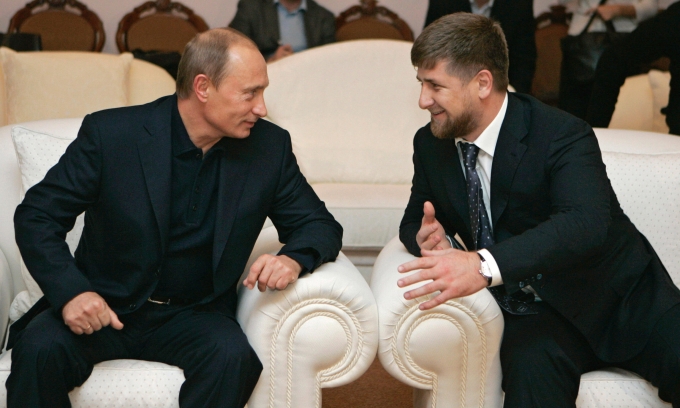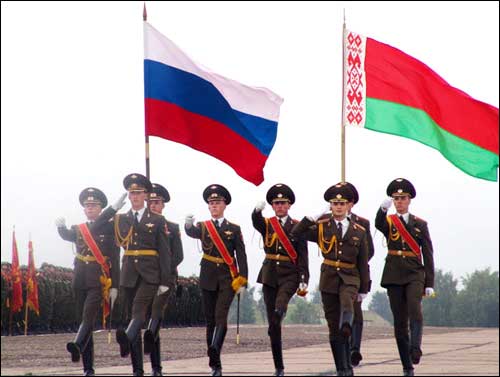
A new constitution for Turkmenistan has been drafted by President Gurbanguly Berdymukhamedov and his cabinet, which is set to extend presidential term limits to seven years and removes the previous age limit of 70 for presidential candidates, the Guardian reports. Berdymukhamedov, 58, is nearing the end of his second term after being reelected in 2012, and this move will likely secure him the presidency for the rest of his life.
Berdymukhamedov is the second president in Turkmenistan’s post-1991 history, coming into power after his eccentric predecessor, Saparmurat Niyazov, died in 2006. Niyazov, who began his leadership of Turkmenistan back in 1985 as First Secretary of the Communist Party of the Turkmen SSR, established an extensive cult of personality around himself, comparable to the cults surrounding the Kim Dynasty. Niyazov’s Turkmenistan was criticized by international observers as highly repressive and totalitarian, as virtually no opposition existed and the citizens of the country were largely powerless to whatever he decreed, no matter how bizarre they may be. Among the stranger laws put in place under Niyazov, he renamed the months of the year after family members, banned dogs from the Turkmen capital of Ashgabat for their “unappealing odor”, barred news reporters from wearing makeup on television (as he could not tell the difference between the male and female anchors), and had an ice rink built outside the capital. Keep in mind that Turkmenistan is, quite literally, a desert. As “President for Life”, Niyazov was only “elected” once in 1992, and had complete and absolute control over Turkmenistan. His irresponsible and total rule went unquestioned and unpunished until his death.
When Saparmurat Niyazov died in 2006, Berdymukhamedov, a dentist by profession, quickly became the acting president, and was “elected” in 2007 with over 89% of the vote. Since then, he has made moves to abolish the personality cult around his predecessor; at the same time, however, he has instead created a personality cult around himself. Like Niyazov before him, Berdymukhamedov has a golden statue of himself in Ashgabat as well, rotating in such a fashion that it is always facing the sun. Although he may not be as repressive as Niyazov, he is far from an protector of human rights (despite his personal title of “Arkadag,” which means “protector” in Turkmen”). One of his more recent acts was to ban air conditioning units in the heat of the summer due to them looking ugly outside of buildings.
However, a key difference between Berdymukhamedov and his predecessor is that unlike Niyazov, he has not been made “president for life”, and thus still has technical term limits and musts technically run for “reelection”. The word “election” throughout this article is in quotations because of the fact that in the country’s brief history, Turkmenistan has never held a free and fair election. But during the Niyazov regime, he was only elected once (in 1992; Niyazov was declared President for Life in 1999 by decree of the rump parliament); this made Turkmenistan somewhat distinguished in this field from the rest of the Central Asian nations, at least for a time. Dictators such as Nursultan Nazarbayev of Kazakhstan and Islam Karimov of Uzbekistan, for example, at least went through the formalities of staging an election, no matter how rigged and unfair they may have been and still are.
But once Berdymukhamedov came to power, the Turkmen Constitution was amended to limit the president’s term to up to five years, making it a requirement for him to run for reelection. And although there was not a limit on the amount of times the president would be able to run, it did have an age limit on the eligibility of the candidate: the president must be no older than 70 in order to serve.
And now, not only are the terms being extended to seven years, but the age cap is likely to be abolished as well. The updated constitution is expected to be passed later this year by the parliament of Turkmenistan, which, much like the rest of the country, follow the will of the president. So this means that Berdymukhamedov, 58, who already has near-absolute power in the neutral country of five million, will be able to continue his presidency likely until the day he dies.
This surely comes as no surprise to anyone who has even mildly followed the dictator over the past few years. Although Berdymukhamedov has attempted to show to the international community that he has made some modest reforms, such as the allowance of certain opposition parties to form (until 2012, Turkmenistan was a one-party state), ultimately these reforms amount to nothing. In the end, Berdymukhamedov still maintains nearly total control over all aspects of Turkmen life, and now his rule has been secured for a very long time. Although he may not be officially labeled as “President for Life” like his predecessor, he might as well be so.





